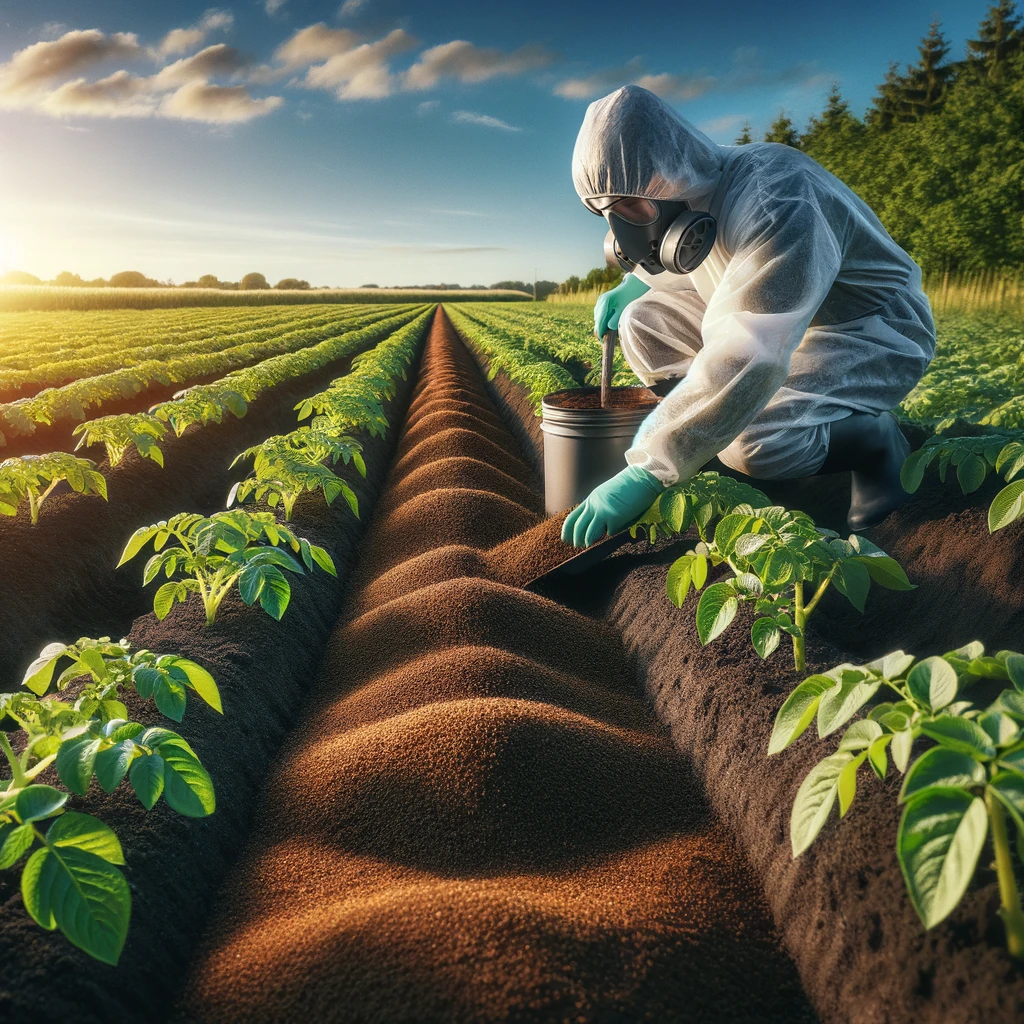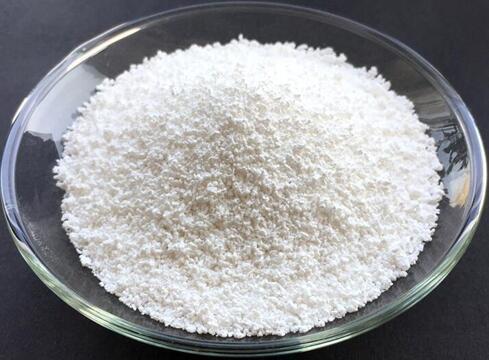Introduction to Organic Potato Fertilization
Organic potato fertilizer is an important component,which is necessary to make potato crops grow and increase the yield.There are many advantages when we use organic fertilizers compared with conventional methods.The reason is that organic fertilizers not only can supply the nutrients to plants, but also can improve soil.For example,the human waste and animal waste can be crushed and refined as organic fertilizers.
They are natural materials,and are good for the growth of plants.With the addition of these substances,the soil will become dark and rich in depth.Thus,there are plenty of micro-organisms in the soil.It is an effective measure to improve the ability of soil to hold water.In addition,the organic fertiliser has less chemical contamination.When we use chemical fertiliser,some pollutants will mix into crops or leak into environment.In fact, the isotopes can also pollute gene.It can be seen that organic farming is a sustainable ecological practice.
Still, the composition and the way nutrients are released from products on the shelves under ‘Organic fertilisers’ is very different from the synthetic options. Typically, they are made with manure, compost, bone meal, seaweed, compost and other natural materials that slowly and steadily release nutrients into the soil. This slow release will not only provide more consistent nutrition to the potato than synthetic choices, but it will also reduce the risk of nutrient runoff into the environment. If you know what an organic fertiliser is, then you can choose your inputs and your practices accordingly to ensure your crop flourishes while minimising environmental impacts.
This fosters the plants, but it also protects the soil’s organic matter and microbial life, which is necessary for the long-term fertility of soil. As more farmers take note of these advantages, the trend towards organic potato fertilisation is spreading among farmers. It’s a small but important sign that farming is becoming more sustainable across the globe.
Understanding Soil Health and Its Impact on Potato Growth
Understanding the need for proper feeding in good soil management means that everything starts beneath the surface. See also: Pest Control in Organic Vegetable Gardens A soil test is the first thing to do before planting any potatoes. A soil test is quite detailed and it reports levels of nutrients and pH in the soil. It is important in that it will tell us what the particular needs of the soil are and also notice where nutrient deficiencies may be; this will help us avoid over-applying the nutrients since, as in underapplying, it is just as detrimental.
In particular, increasing soil structure and fertility is one of the central tenets of organic farming. Adding organic matter in the form of composts or aged manure to the soil can rapidly improve its structure. Improving soil structure enhances its ability to retain water in the root zone and allow air movement through the soil, thus creating better conditions for healthy root development and the uptake of nutrients. These are essential for healthy potato growth.
Another important function of soil organic matter is that it is the main food source of small soil microorganisms. These microorganisms are behind many of the biogeochemical processes that move nutrients through this busy underground community. Adding organic matter to the soil opens the micropores through which nutrients travel. As a result, over the longer term, the activity of microorganisms ensures greater fertility in the soil.
Specialists, such as Helen Groves, a sustainability researcher and agronomist with the University of Vermont, stress the long-term advantages of having healthy soil: ‘[I]f you care about the future productivity of your farm, focus on soil health. By building the soil system organically, you are investing in your field’s future productivity; you are not only investing in your current crop, but also the next crop and the one after that.’
These natural practices enable farmers to enhance soil health in a way that optimises the yield potential of their potato crops in a sustainable manner over time. Maintaining a healthy soil environment not only optimises the yield of the current crop but also enhances the sustainability of agriculture for generations to come.

Choosing the Right Organic Potato Fertilizer
Organic potato fertiliser selection is also important to potato growth and yields. Some effective organic fertilisers for potatoes are compost, manure and bone meal. For plants, compost generated from decomposed organic matter such as kitchen wastes provides a balanced supply of nutrients and improves soil structure.
Manure, particularly cow or chicken manure, is a source of nitrogen, a vital nutrient for plants. Besides potassium and magnesium, manure contains vitamins and minerals that plants need for healthy growth and development. Phosphorus is the only element in the fertiliser bone meal, a typical nitrogen-free fertiliser. As plants require phosphorus, phosphorus fertiliser is vital for the growth and development, particularly the root system of potato plants.
It is also imperative that one sources high quality organic fertilisers. The first factor that must be considered when choosing fertilisers is compost quality. Compost containing an adequate quantity of carbon and small particles tend to work better. Composts that have been insufficiently composted or have low nutrient content are also undesirable. Similarly, fertilisers harbouring pathogens and weed seeds, or containing toxic chemicals, should be avoided. Aside from physical qualities, it is important to consider soil nutrient requirements.
This information is often available from soil test results (widely available in certain regions), so it is important to assess your specific soil’s needs before making any decisions related to fertiliser. ‘Choose fertiliser that matches your soil conditions,’ says Lucy Zheng, a soil scientist from IITA, ‘this ensures efficient nutrient consumption and reduces waste.’
Here are a few tips for selecting high-quality organic fertilizers:
- Make Sure Compost Is Matured: check that the compost is matured to prevent applying your soil with phytotoxic substances.
- Balanced Nutrient Content: Fertilisers should contain a balance of nitrogen, phosphorus, and potassium, quantities that are adjusted according to the soil-test results.
- Check the Source: Be sure your manure or compost comes from organic farming and is free from contaminants.
A good potato seed-piece, combined with the right organic potato fertiliser, can dramatically influence how healthy and productive a potato crop turns out to be. It goes without saying that choosing the right ingredients in the right quantities at the right time all contributes to a healthy and well-balanced crop.
Application Techniques for Organic Potato Fertilizer
Using organic potato fertilizer in the right way is as important as choosing the right type. Applying it in the right way can greatly improve its absorbance by potatoes, so your potato plants develop healthily and your harvest brings you abundant results.
Best Practices for Applying Organic Fertilizer to Potato Crops:
The ideal timing is right before planting and during major growth stages of the potato, at the time when batches of tubers are developing, particularly bud initiation and bulking.
Method: Spread fertilizer over the planting area to promote an even crop. Granulated fertilizers, such as bone meal, could use an even-spreading broadcast spreader.
Integration: Once applied, you should gently cultivate the fertilizer into the top couple of inches of soil which helps to integrate the fertilizer into the soil and also reduces fertilizer loss to run-off.
Frequency of Fertilizer Application for Optimal Growth:
Initial Application: A base application before planting helps set the stage for healthy growth.
Supplemental Applications: Nitrogen. Other plant nutrients. Stage of growth. Results of soil tests. After heavy rains or irrigation that can remove nutrients from the soil.
Precise fertilizer application: ‘With organic fertilizers, you need to really understand both the nutrient needs of the crops and the current nutrient levels of your soils,’ says Dr. Emily Carter, senior agricultural expert with the Rainforest Alliance. ‘When you have precise knowledge of what the plant needs and the soil availability, then you use those exact proportions, which allows you to get the most out of a plant in terms of yield and reduces overall environmental impact.’
These best practices will help potato growers to apply nutrients in exactly the right amounts to the potato plants at exactly the right time over the course of the growing season. So, besides increasing productivity, this targeted production will also contribute to making agriculture more sustainable by reducing waste and burden on the environment.

Common Challenges in Organic Potato Fertilization and How to Overcome Them
Spreading organic fertilizer on potato fields is associated with some specific issues in organic potato management, such as nutrient balance problems and nutrient slow release. In order to successfully manage organic potatoes, it is important to be familiar with these issues and take proper actions.
Dealing with Nutrient Imbalances:
Nutrient imbalances can occur, e.g., when your soil has a deficiency or excess of some nutrients, leading to poor plant performance and yields. That’s why you should conduct frequent soil tests, and adjust your composition of organic potato fertilizer as needed. You can alter the nutrient composition because adding some types of organic matter will balance nutrient levels – for example, you can add green manure or compost, which will increase the nitrogen level of your soil, or you can add bone meal, which contains phosphorus.
Strategies for Managing Slow Fertilizer Release in Organic Farming:
The complexity of organic fertilizers means they often release nutrients more slowly than synthetic fertilizers. Although this slower release is ideal for long-term soil health, it fails to service the greedy appetite of growing potato plants for nutrients. To address this failing, I recommend the following:
- Plan supplemental applications: Based on growth stages and soil nutrient availability.
- Include different organic materials: The rate of decomposition of different types of organic material varies and nutrients are released over different timescales.
- Apply liquid organic fertilizers: They might come in handy to give your plants an instant boost of nutrients, especially during the growing season (technically speaking, all seasons are growing seasons, but some of those months are more growth-oriented than others).
‘In organic farming, we need to anticipate [nutrient release dynamics] proactively; this requires preparing soil, fertilizing soil, understanding the plant requirements so when the plant needs the nutrient we can feed the plant and the plant can thrive,’ says Susan Lee, a plant pathologist.
In this way, we as organic potato farmers can tackle these challenges, and show just how well the science and strategies of sustainable pedology can enhance yields while simultaneously promoting healthy, productive, and resilient soils.
Conclusion
In a nutshell, potato growth can be maximized by using organic potato fertilizer because when they are applied correctly, a potato plant can take all the nutrients they need for their growth. At first, choosing the right quality of organic or chemical fertilizer, such as compost, manure, and bone meal depends on kinds of potato that will be grown. Then, it is comfortable for applying them in right time and way for potato plants.
Using best practices for soil health, fertilizer application and pest pressure can both significantly increase yields and reduce impacts on the environment. Rather than a last resort, organic potato farming can become a sustainable practice that helps support long-term soil health and a more sustainable farming system.
These organic methods form a cornerstone of boosting the vitality of our potato plants in a more natural way, thereby creating the potential for healthier plants and better sustainable farming practices. With these organic practices, we can ensure that the agricultural methods of the future remain eco-friendly and cost-effective.
Here are some scholarly resources :
- Meta-Analysis of Organic Fertilization Effects on Soil Bacterial Diversity: This study explores how organic and combined organic-chemical fertilization affects soil bacterial diversity and community structure, noting significant changes due to shifts in soil pH and increased abundance of certain bacterial phyla. It emphasizes the benefits of organic practices for maintaining soil fertility and microbial health in agroecosystems.
- Fertilize Potatoes Naturally – Fantastic Organic Potato Food: This resource offers various homemade and natural fertilizer options for potatoes, including using vinegar, grass clippings, Epsom salts, and manure tea. It provides tips on how to use these natural ingredients to enhance soil nutrition and support healthy potato growth.
- Best Fertilizer for Organic Potato Farmers: This article discusses the advantages of using chicken manure pellets, emphasizing their slow nutrient release and high calcium content, which are beneficial for growing potatoes. It also covers practical tips for organic potato farming, including soil preparation and planting techniques.







